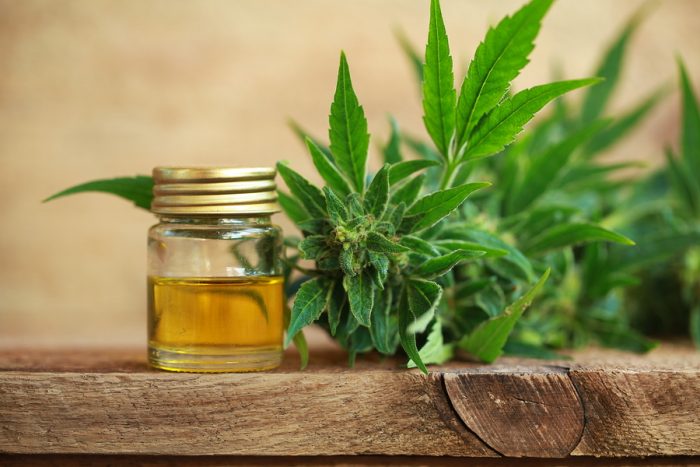

A trendy topic in the wellness arena, CBD (Cannabidiol) has gained enormous popularity within the last few years. While more people are opting for CBD products, it’s still a topic that can leave us confused as to whether CBD is the same as psychoactive marijuana or if it is a safe and natural option, akin to taking any other herbal product.
As more U.S. states legalize medical and recreational marijuana, cannabis and related products like CBD are getting more attention. And chances are, you’re getting more and more questions; Is CBD safe to take? How can it help me? Is it even legal?
We’ve brought the answers to these questions and more for you here, offering the foundation you need to see if this time-tested natural aid is right for you.
What is CBD?
CBD is a natural component of the hemp plant and just one of many active cannabinoids found in cannabis sativa. CBD is not the part of cannabis that gets you “stoned,” but many CBD advocates claim the natural supplement has helped them in a variety of ways.
CBD is legal in the United States as long as it complies with federal regulation, which states that the CBD must be extracted from the root, stem or seed of hemp and not from the leaves. We recommend checking out your state’s laws regarding CBD to be sure.
What’s the Difference Between CBD and THC?
The cannabinoids found in cannabis (CBD and THC) interact with a larger system in the human body, called the endocannabinoid system (ECS). The ECS naturally produces endocannabinoids and is comprised of cannabinoid receptors, which are responsible for the effects we feel from cannabis.
The difference between CBD and THC lies in how they interact with the body. THC (Tetrahydrocannabinol) binds to CB1 receptors which are found mainly in the brain and nervous system. The high we feel from THC is due to the activation of the CB1 receptor. It does not interact with CBD and that’s why CBD does not produce an intoxicating effect. Instead, CBD binds with other receptors and pathways that provide other types of physical and emotional effects.
Studies show that the CBD and THC cannabinoids are more effective when used together, which is why many products, namely “full spectrum” CBD products, contain a very small amount of THC of less than 0.3%. But don’t worry; this trace amount of THC won’t produce any intoxicating effect. For further assurance, CBD inhibits an enzyme called FAAH, which activates the CB1 receptor (the same one THC activates). At higher doses, CBD may actually help to mitigate the limited effects of any trace amounts of THC present.
What Types of CBD Products Are Available?
CBD can be taken in the form of a capsule, oil, edible or tincture, through vaping, and as topical skincare.
If you’re new to CBD products, it’s best to be safe and start low and slowly increase your dose of CBD. Starting with a daily dose of 20-40 mg is recommended by many users. Talk with your doctor first before taking CBD.
What Are the Benefits of CBD?
While CBD does not activate the ECS receptors that cause the high from cannabis, they do activate other receptors that are involved with pain, inflammation and emotional responses in the body: The TRPV-1 receptor, involved in the reduction of inflammation and pain in the body; Adenosine receptors, involved in regulating the release of dopamine, the “feel good neurotransmitter”; and 5-HT1A, which is linked to the release of serotonin.
Getting Started with CBD
First, it’s important to speak with your doctor before taking CBD to make sure it’s safe for you to do so. Then, be sure to find a reputable supplier and choose only high-quality CBD in the form that best suits you. CBD oil is one of the most popular ways to take CBD, often made with added flavors that make it easy and enjoyable to consume.
Image credit: Total Shape.
Browse Front PageShare Your Idea
Comments
Read Elephant’s Best Articles of the Week here.
Readers voted with your hearts, comments, views, and shares:
Click here to see which Writers & Issues Won.






Amazing. Thanks for sharing the info!